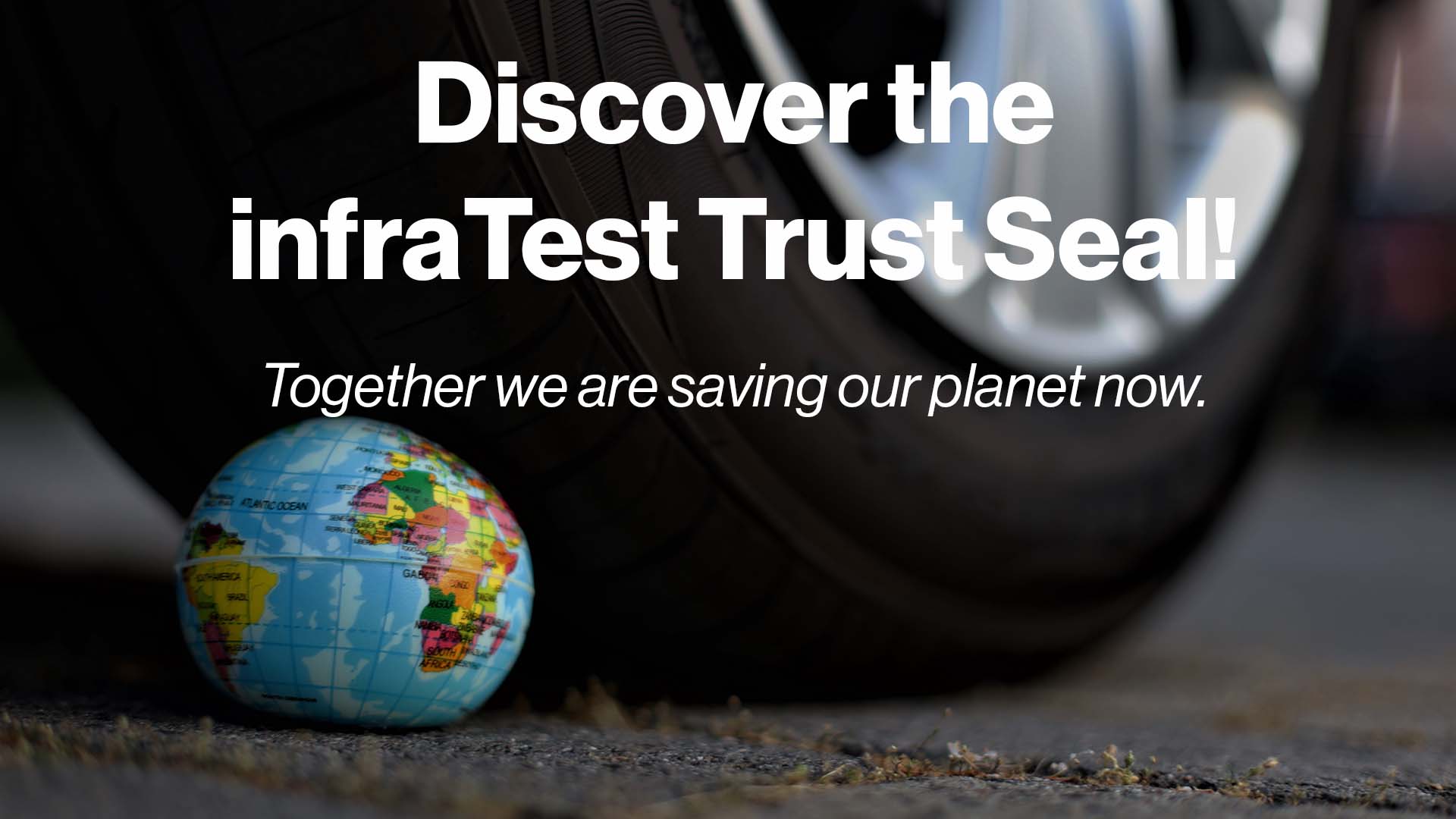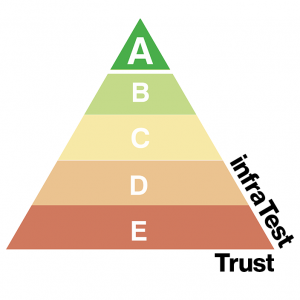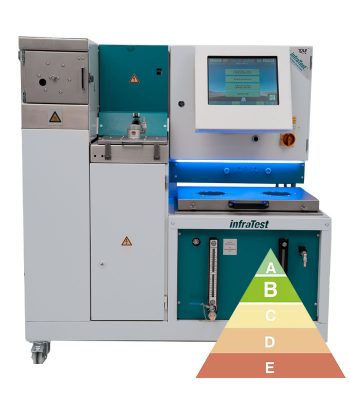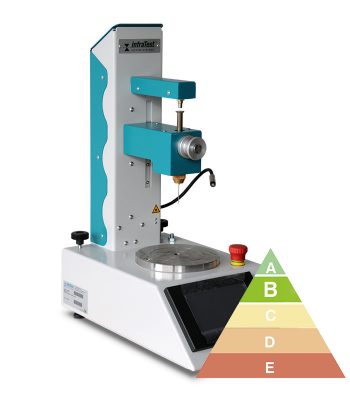
Climate change is an unavoidable issue that every individual and business must address. We can already see and feel the consequences of our actions in significant ways. Although us at infraTest have been working regularly on our environmental management since 2009 and are looking for new ways to act more sustainably, we are firmly convinced that we have not yet exhausted our full potential. We have therefore decided to develop a concept that creates more transparency and objectivity. The infraTest Trust supports us as a leading provider in developing test devices with a future.
The infraTest Trust Seal is our own commitment:
Each of our bestsellers will have to meet our internal evaluation criteria and receive a quickly readable result on the infraTest Trust score. We are aware that our new concept may be subject to further adjustments and refinements as it is implemented. However, if we don’t start changing something now, it may soon be too late. Support us step by step to take a new path and get involved in your workplace with the infraTest Trust!
What is the infraTest Trust seal?

The infraTest Trust seal is based on a set of criteria that are displayed in a traffic light system. Customers and employees can see at a glance how environmentally friendly the product is. Our infraTest Trust sets new standards, as it guarantees more transparency, trust and objectivity. We have developed a practical system for monitoring our climate protection performance.
The infraTest Trust is divided into classes A, B, C, D and E. Here, A indicates the best grade and E the worst. The corresponding grade is always visually highlighted on the scale. Thus, our internal goal is not to produce a best-selling product with a grade lower than B. If we find during development that a product does not comply with our environmental protection guidelines, we can immediately identify the levers.
What does the infraTest Trust seal do for you?
Buyers have the responsibility to purchase the most cost-effective product with the best quality. Our label gives you another argument: with infraTest products you buy solutions that actively address the compatibility of industry and climate protection. The time-consuming research into your purchasing criteria with regard to sustainability is considerably reduced by our label. With your support, we are firmly convinced that we are embarking on a new path that is urgently needed!
Therefore, the infraTest seal of approval for users is a quality criterion that makes you a pioneer. Your health has always been important to us: now it’s our planet’s turn.

What are the criteria of the infraTest Trust?
Energy consumption
We measure the energy consumption of the device under test at its maximum use and enter the kWh on a scale. Using this scale, we convert the value into a score from 1 to 5, where 1 is bad and 5 is very good.
CO2 emissions
This criterion takes into account the total CO2 emissions resulting from the production of the different materials used. In the calculation we refer to the values of the following sources: steel, stainless steel, aluminum and copper. The calculated CO2 emission is classified in a score on a conversion scale.
Small batch ratio
Examines the ratio of components of a product that are manufactured in small batches to those that are mass-produced. The higher the percentage of small batches, the higher the percentage of small businesses we support. We translate the percentage into a score from 1 to 5 using a scale.
Longevity
We calculate this criterion from the average time until replacement. We rank the values on a scale from 1 to 5 and translate them into a score. Here, 5 is the best score.
Recycling rate
For the recycling rate, we break down the recyclable components of a product. These are related to the total weight.
Regionality
For each product, we look at the distance between each supplier and us. The regionality index shows the percentage of our suppliers within a 500 km radius.
How are the criteria weighted?
On the basis of a value-in-use analysis, we calculate the results of all criteria into an overall score. We apply the following weighting:
- Energy consumption: 15 %
- CO2 emissions: 10 %
- Small batch ration: 10 %
- Longevity: 15 %
- Recycling rate: 15 %
- Regionality: 35 %
For us, the criterion of regionality has the highest priority, as this is where we can make the biggest changes. By being close to our suppliers, we reduce transport distances and thus CO2 emissions during delivery. In addition, we promote employment in Germany and ensure good relations with our suppliers. As a result, we avoid communication problems or misunderstandings, so that production defects are rare. Finally, we are able to have a better control on the quality of the prefabricated parts because of the geographical proximity.
We make a second subdivision between the criteria of energy consumption, recycling, longevity and CO2 emissions, as well as the proportion of small series. We can only influence the last two criteria indirectly, for example by choosing suppliers who meet our requirements. Nevertheless, these criteria are important points that we want and need to take into account.



